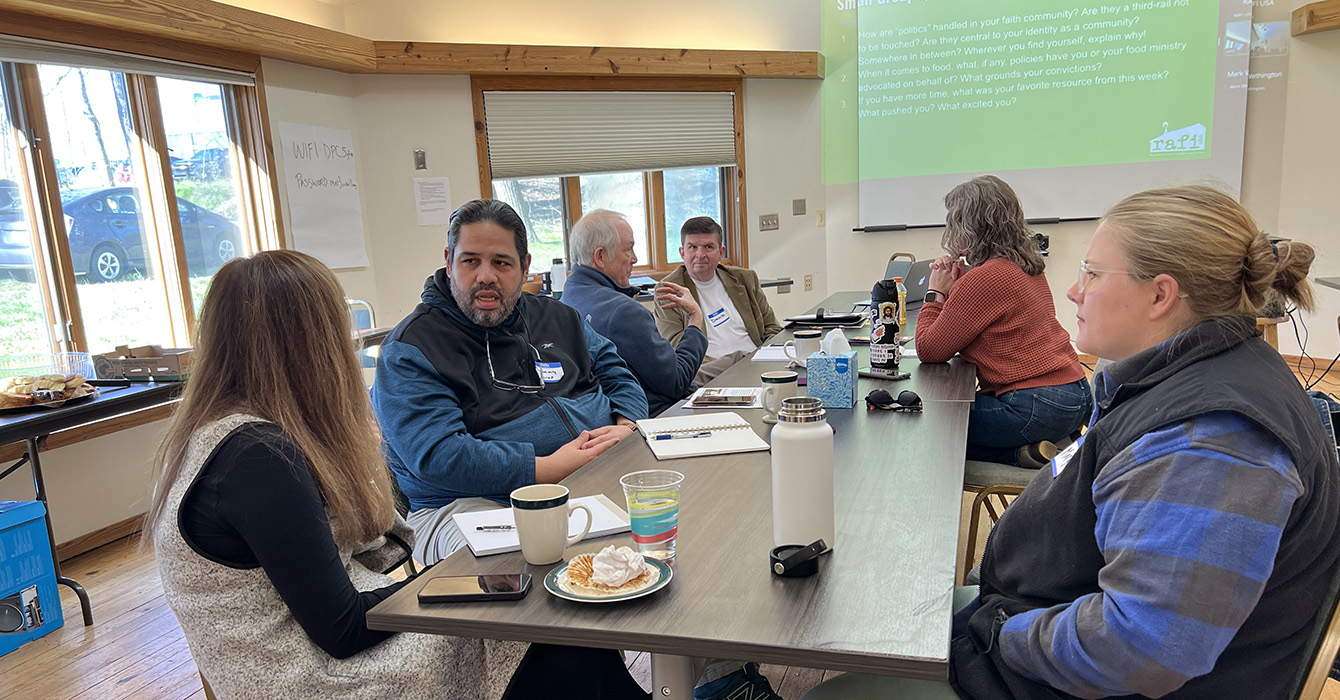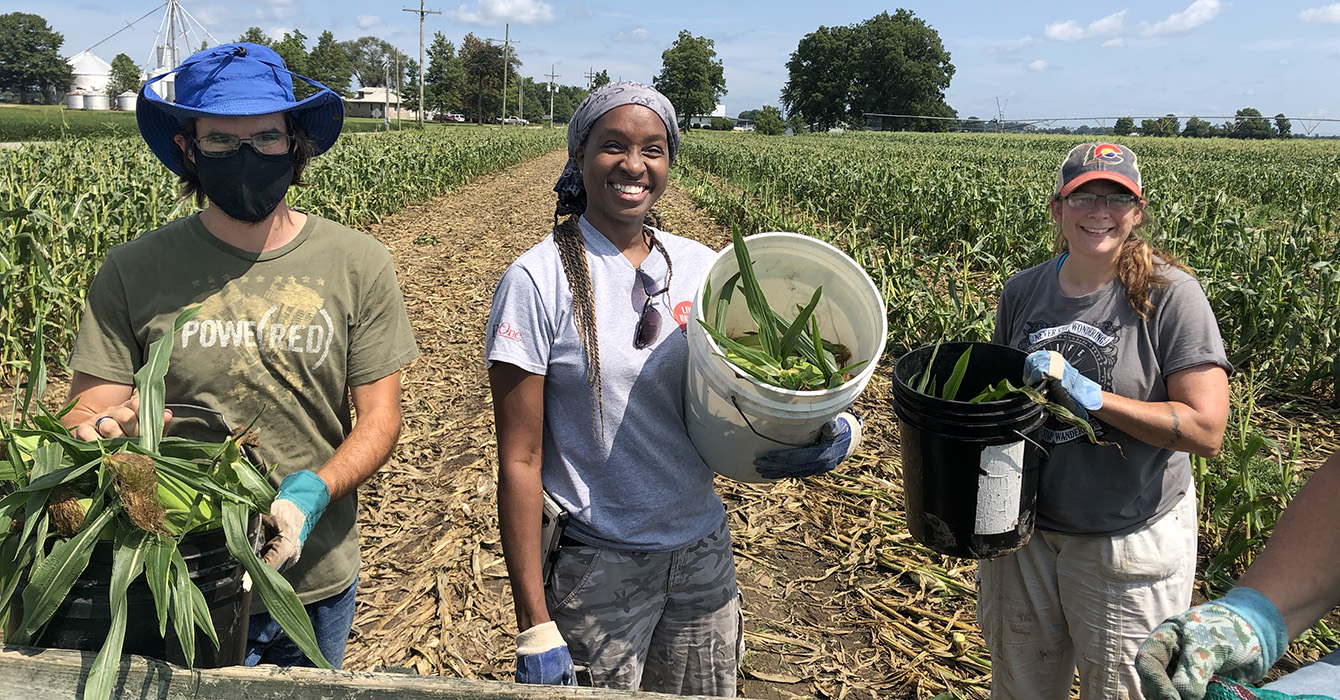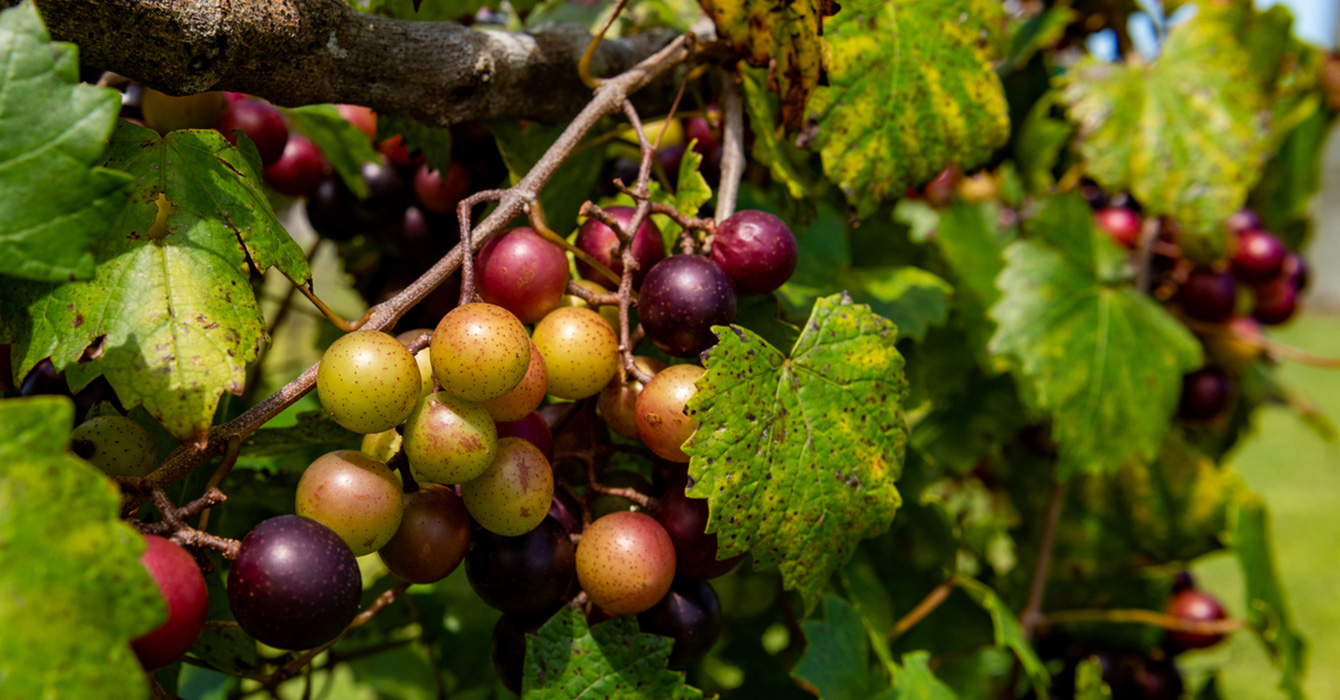How churches can work to make the demand for food pantries obsolete
A program in North Carolina is teaching faith leaders to tell the stories of food needs in their communities as they help build a movement toward systemic change.
Recently published
A program in North Carolina is teaching faith leaders to tell the stories of food needs in their communities as they help build a movement toward systemic change.
 Link to author David Allen
Link to author David Allen
More than just a space to grow food, the seminary garden serves as a hub for local gardeners and community activists pursuing racial and economic justice.
 Link to author Chelsey D. Hillyer
Link to author Chelsey D. Hillyer
A writer picking muscadine grapes in the late Florida summer experiences the vineyard as a living sermon.
 Link to author Andrew J. Skerritt
Link to author Andrew J. Skerritt
Black barbecue has always been a remarkably religious experience, says a James Beard award-winning food writer in this excerpt from his new book.
 Link to author Adrian Miller
Link to author Adrian Miller
Our ability to eat is intertwined with systems of immigration and food production. Christian leaders must address justice issues in both, writes a managing director of Leadership Education at Duke Divinity.
 Link to author Maria Teresa Gastón
Link to author Maria Teresa Gastón
Church leaders need to recognize the potential for new ministry at the intersection of food, agriculture, and discipleship, says an Episcopal priest who has compiled the first comprehensive guide to the Christian food movement.
Level Ground Trading is dedicated to fair trade with farmers. But its co-founder also has a larger, theological vision: a system designed for the good of all.
The lonely death of a member of his community prompts the director of a community garden to reconsider the project’s mission.
 Link to author Chas Edens
Link to author Chas Edens
A North Carolina program for clergy, congregations and communities called Life Around the Table focuses on eating well as a way to nurture healthy Christian communities. The key, as its founder says in this interview, is developing a eucharistic imagination.
Whether adjective, noun or verb, “barbecue” has a theological dimension that is deeply enmeshed in church culture -- especially in the African-American church, writes the culinary historian, barbecue judge and executive director of the Colorado Council of Churches.
 Link to author Adrian Miller
Link to author Adrian Miller
Eating seasonally can be a Lenten discipline in the age of climate change -- a way to cultivate a habit that the world needs, that lasts beyond the 40 days.
 Link to author Christine Hribar
Link to author Christine Hribar







